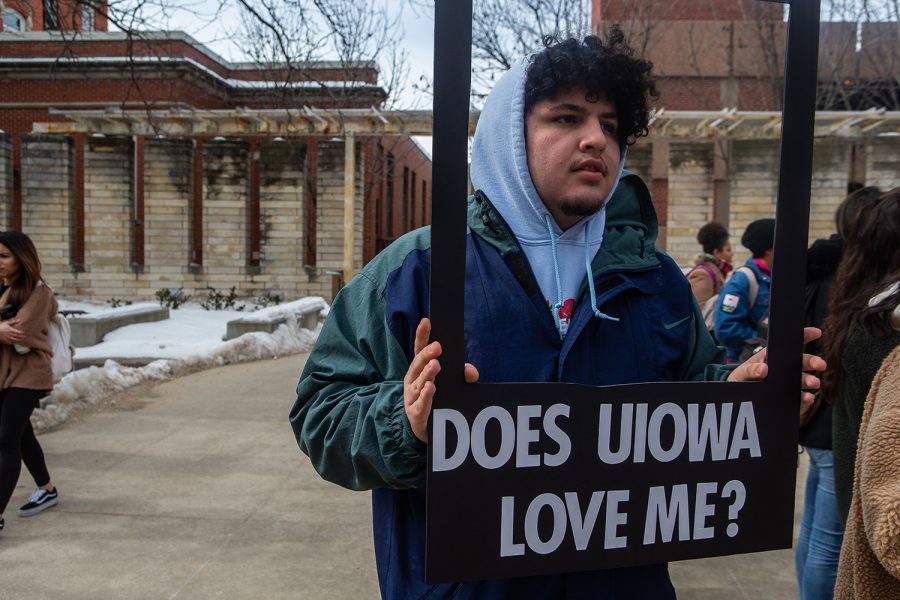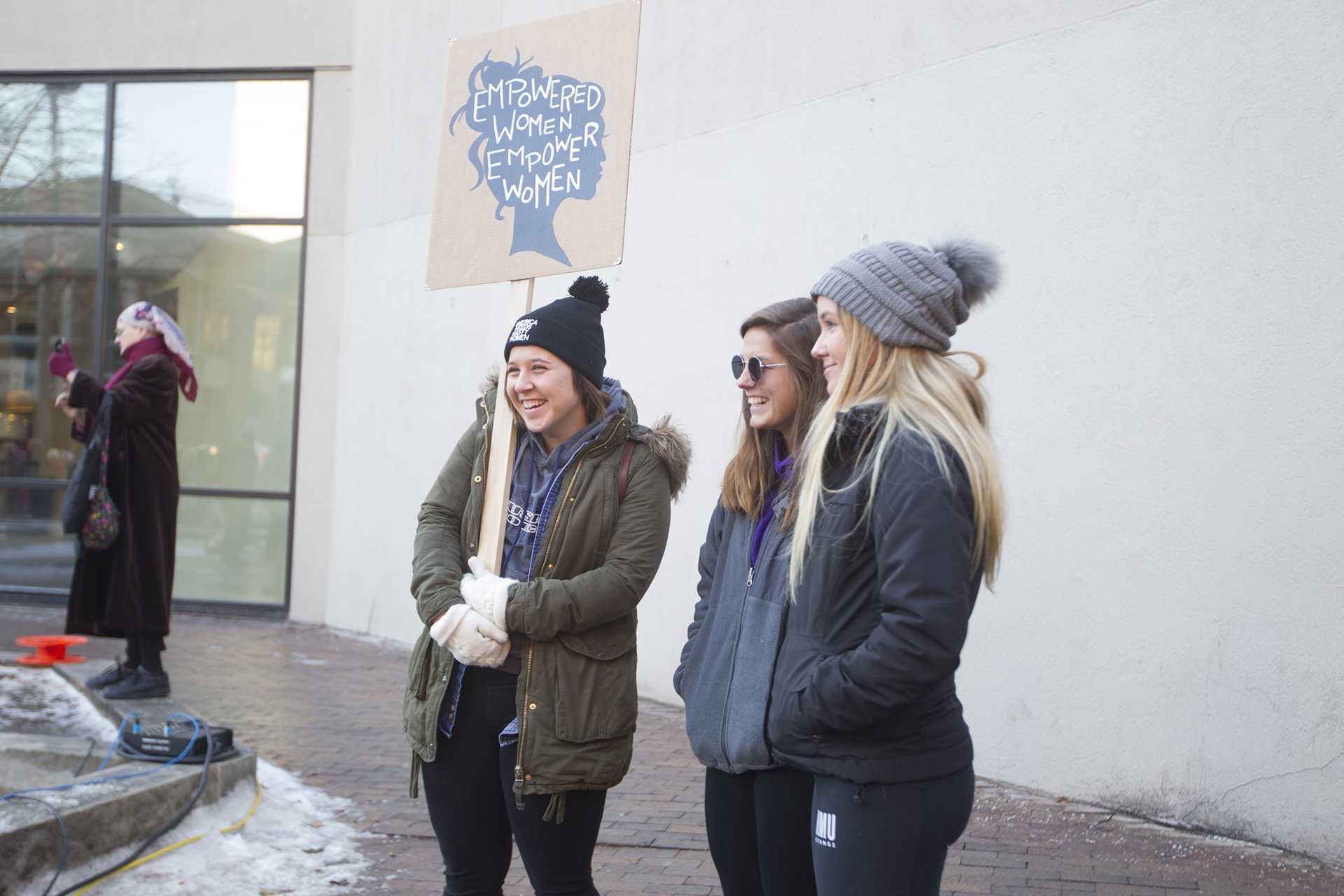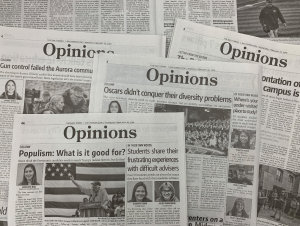Neal: Will a hashtag make the UI love us?
The trend #DoesUIowaLoveMe has sparked discussion over social media platforms, but consistent physical steps in real life must be taken in order to confront racism within a white institution.
UI Student Chris Vazquez holds a picture frame during a rally for the #DoesUIowaLoveMe movement in the T. Anne Cleary Walkway on Thursday, February 28, 2019. Students, university faculty, and community members gathered to tell their stories about belonging to marginalized cultural groups. Does UIowa Love Me is a collective of students that aims to give underrepresented students an outlet to share their experiences as people of color at a predominantly white institution. (Wyatt Dlouhy/The Daiy Iowan)
March 4, 2019
The absolute most amazing thing about the social-media trend #DoesUIowaLoveMe is that we even consider that a white institution would care about minorities. With 91 percent of the red state of Iowa and 82 percent of the students at the University of Iowa being white, a lot of us remain baffled when we face racism.
Experiencing racism is baffling — nearly incomprehensible, and the occurrences linger in prevalence. The dominance of white bodies and social leniency when it comes to racism and microaggressions at the UI does not excuse any variant of discrimination and is (without exaggeration) a gargantuan issue. However, is the recent social-media trend #DoesUIowaLoveMe enough to confront this massive issue?
RELATED: #DoesUIowaLoveMe? UI students ask question in social-media movement
For the past week, my Twitter timeline has been flooded with the hashtag #DoesUIowaLoveMe, a topic that brings to the surface the marginalization that groups of minorities face on the UI campus. Many people of various identities are telling their stories of discrimination they have experienced on campus, including tweeting about their discomfort with the group of students who hoisted up a shoddily made sign that read “BUILD THE WALL.”
Racism is an inescapable issue that has plagued numerous communities at the UI. I reside in the Slater Living Learning Community, Young, Gifted and Black, a predominantly black floor that serves as a safe space for people of color. Part of what makes living in such a comforting space is the relatability when it comes to something as small as how we style our hair as well as wider issues such as how we navigate a predominantly white campus; instead of sharing ghost stories, we share the racist experiences we have encountered throughout our life.
RELATED: Students share #DoesUIowaLoveMe stories at rally
Last semester, a friend of mine from down the hall vented to some of the neighboring residents about a situation in which she found herself. While holding the bus up for a moment to ensure some of her friends could make it on, a white man muttered, “that’s a n****r move.” Taken aback by the statement, she asked the man to repeat what he had said, which is when he replied, “I didn’t mean it in an offensive way.”
Racist actions such as these happen to people whether one chooses to acknowledge them or not, and if the rate of these occurrences is questioned, it remains irrelevant to the validity of the fact they still occur. The importance of #DoesUIowaLoveMe is that it is an opportunity to feel supported by others who have faced discrimination and found themselves in similar situations — it makes one feel less alone, less isolated.
Although any movement that is for equality is courageous, the critique of this trend is that it comes off to some as another case of empty social-media activism. This easily becomes viewed simply as performative activism. Social-media activism manifests a message, but it is ambiguous on whether it solves the issue at hand, leaving us in an awkward position.
RELATED: Shaw: #DoesUIowaLoveMe? Maybe not, but there’s hope for a future where it does
The goal is to spread a message by promoting it through social media, then hosting demonstrations publicly that clearly gain attention, but at a certain point, more must be done than maintaining the stagnancy of proclaiming a problem and going in circles.
This is not to say there is an outright absence of active participants when it comes to outreach in marginalized communities, but the copious number of stories regarding such racism, homophobia, and bigotry calls for more individuals being actively involved. Being aware of the motives people when they interact with a movement online and making sure their actions in real life are consistent with what they proclaim is important in maintaining the relevance and progression of social movements. Those of us contributing to these social-media movements must be mindful of our motives and how we’re contributing to the movement outside of the internet.






